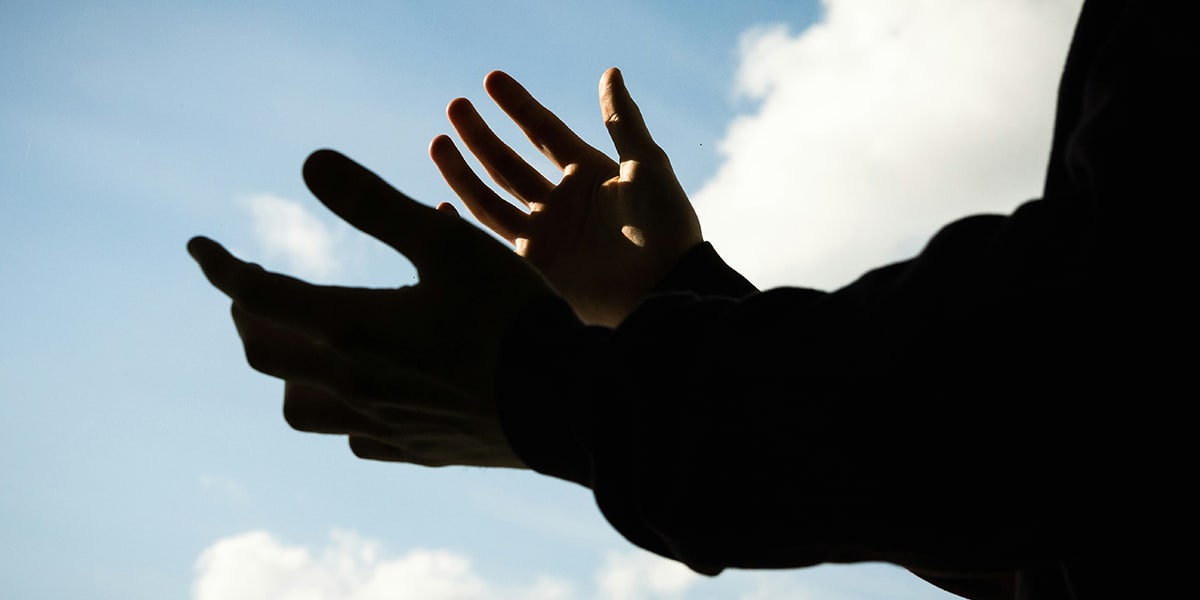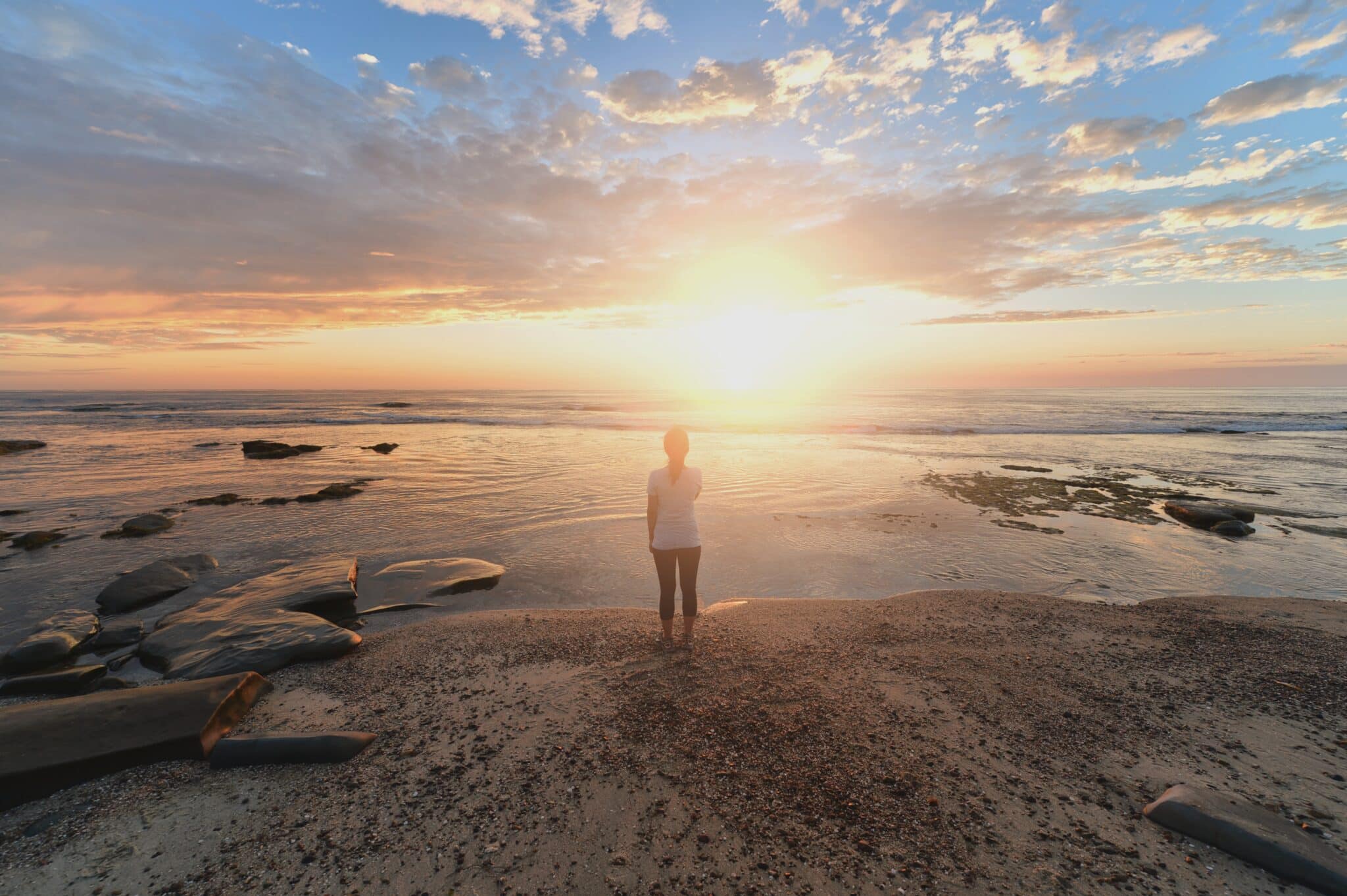“If we really want to be at peace,” environmentalist Wendell Berry writes, “we will have to waste less, spend less, use less, want less, need less.”
The trail begins with an easy climb, along old logging roads, through a young mix of pine and oak, hickory and sweet gum. The last of the golden crowned kinglets call their see-see-see from the needled branches of the loblollies and the red buds blaze with their purple signs of spring. The season turns; tilting again toward the sun.
This is the time of turning—the 40 days of fasting and penance that are meant to bend us again toward the light, to tune our souls to God. It is a time when we welcome silence into our lives so that we can stop from the rush and listen to the God who arrives not in the roar but the quiet.
I’ve been climbing this mountain as many days as I can this Lent, finding a place among the rocks, looking down on the valley. This is a quiet place, a place where Creation speaks in its fullness. But the landscape below is pocked and marked by another way. The ridge across from here is littered with television and cell phone towers, the valley is marred by sprawling homes. When I was a boy these were mostly wild places, a home to green herons and bobcats, the city’s borders still out of earshot. In the last 20 years the farms have given way to shopping centers and cookie cutter houses, forests to fertilized lawns and golf courses.
“We all live by robbing nature, but our standard of living demands that the robbery shall continue.” These words from the farmer and writer Wendell Berry ring in me like the words of John the Baptist: repent, for the kingdom of God has come near.
I’m as much a participant in this theft as anyone else. I drive too much, buy too much, use too much. I’m addicted to convenience and choice, I’m in the thrall of that old vice luxury. And yet, like so many others I want peace, I want wholeness, I want the creation to be full and alive. This is the disjunction we call sin—the disordered desires Augustine saw as the roots of our disease. To get straight we must change our ways and our wants.
“If we want to be at peace,” Berry writes, “we will have to waste less, spend less, use less, want less, need less.” Our lives must be disciplined into the proper scale of the human. Such change of heart and desire cannot be accomplished simply by a moment’s decision. It requires the grace and effort of conversion, the turning and tuning that this penitential season is all about.
When I reach the mountain peak, over the field of boulders, sweat drips from my brow and borders my backpack. It has been warm here most of February, a string of record breaking days. It is the point of constant conversation. Though few want to say the words “climate change,” even the skeptics must wonder at the weather. Some days will always be different, cold spells and warm, but we’ve had “strange weather” here for years now.
The challenge climate change brings is one that pits the excesses of human life against the whole of the creation. Our very way of life, in the layers of habits and convenience, are at the root of the destruction of God’s gifts. As Pope Francis says in Laudato Si:
“People may well have a growing ecological sensitivity but it has not succeeded in changing their harmful habits of consumption which, rather than decreasing, appear to be growing all the more. A simple example is the increasing use and power of air-conditioning. The markets, which immediately benefit from sales, stimulate ever greater demand. An outsider looking at our world would be amazed at such behavior, which at times appears self-destructive” (LS 55).
If we are to turn and tune our lives to God, to enter ever more deeply into the patterns of God’s gifts in the creation, then we must diminish our wants; we must change our “harmful habits of consumption.” The work of penance and fasting are meant to enable such changes. They are the modes by which we return our lives to our humble roots in the humus, the life giving dirt.
The time I have on the rocky edge runs thin. I’ll have to descend soon enough, but for a moment I feel the grandeur of creation and my smallness in it. For a moment I have no worries, only the sense of God’s abiding grace in the world. It is that sense to which all penance points—a clearing away, an opening to the light all around. It is the way of humility, the poverty of spirit, which lets us see it.








